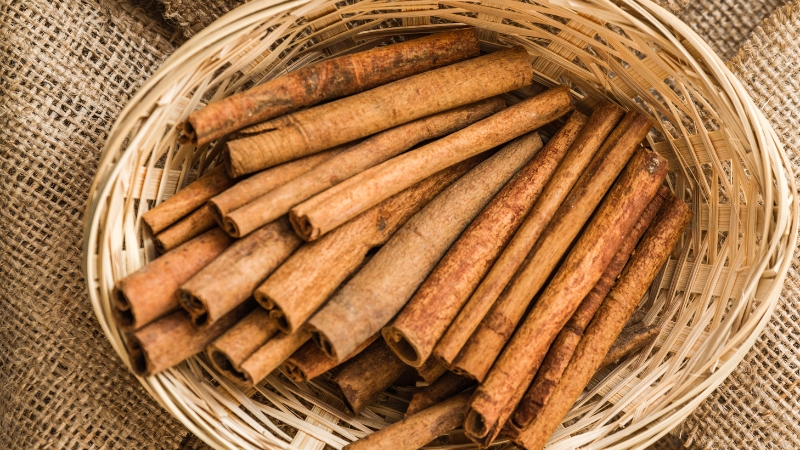Cinnamon is a valuable spice with unique nutritional properties and aroma, commonly used in cuisine, traditional medicine, and health care. The two most popular types are organic cinnamon and Ceylon cinnamon. While both offer various health benefits, they differ notably in origin, composition, and quality.

1. Origin and Classification
- Organic Cinnamon: This is cinnamon grown naturally, without pesticides, chemicals, or preservatives. Organic cinnamon can be either Cassia or Ceylon, but it is cultivated under strict practices to achieve organic certification.
- Ceylon Cinnamon: Also known as “true cinnamon,” Ceylon cinnamon (Cinnamomum verum) originates from Sri Lanka and is prized for its mild flavor and less pungent taste compared to Cassia cinnamon (Cinnamomum cassia). Ceylon cinnamon can also be organically grown, creating a product that is both Ceylon and organic.
2. Chemical Composition and Health Benefits
- Coumarin Content: Cassia cinnamon contains a significantly higher level of coumarin than Ceylon cinnamon. Although naturally occurring, excessive coumarin intake can harm the liver. Ceylon cinnamon, with its lower coumarin content, is considered safer for prolonged use.
- Health Benefits: Both organic and Ceylon cinnamon are rich in antioxidants that promote cardiovascular health, regulate blood sugar, and aid digestion. However, Ceylon cinnamon is gentler on the digestive system and suitable for individuals with sensitivity.

3. Flavor and Culinary Applications
- Flavor: Cassia cinnamon has a strong, pungent aroma and spicy flavor, suitable for robust dishes. In contrast, Ceylon cinnamon has a subtle, sweet fragrance, making it popular in desserts, beverages, and Western dishes.
- Culinary Use: Cassia cinnamon is commonly used in Asian and Middle Eastern cuisines. Ceylon cinnamon, with its refined flavor, is often used in Western countries for desserts and drinks.
4. Pricing and Quality Standards
- Commercial Value: Ceylon cinnamon is typically more expensive than Cassia due to its cultivation process and higher quality. However, organic Cassia cinnamon also holds substantial value in the international market due to its chemical-free cultivation, ensuring consumer safety.
- Quality Standards: Organic cinnamon must meet organic standards, such as being free from preservatives, pesticides, or chemical fertilizers. Certifications like USDA Organic or EU Organic are essential for organic cinnamon to penetrate international markets.

Conclusion
Choosing between organic cinnamon or Ceylon cinnamon depends on personal preferences and intended use. For a bold flavor, organic Cassia cinnamon is an ideal choice. Meanwhile, Ceylon cinnamon is milder and safer for long-term consumption. Both types of cinnamon provide valuable nutritional benefits and are excellent options for a healthy diet.



